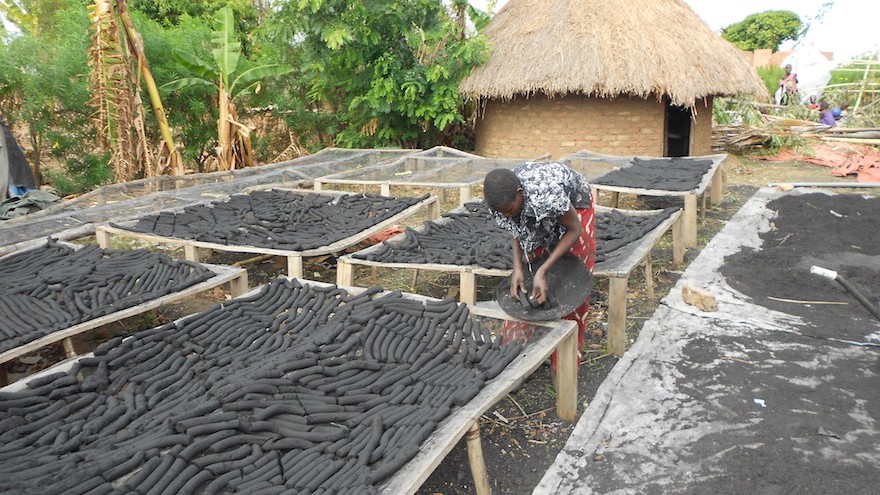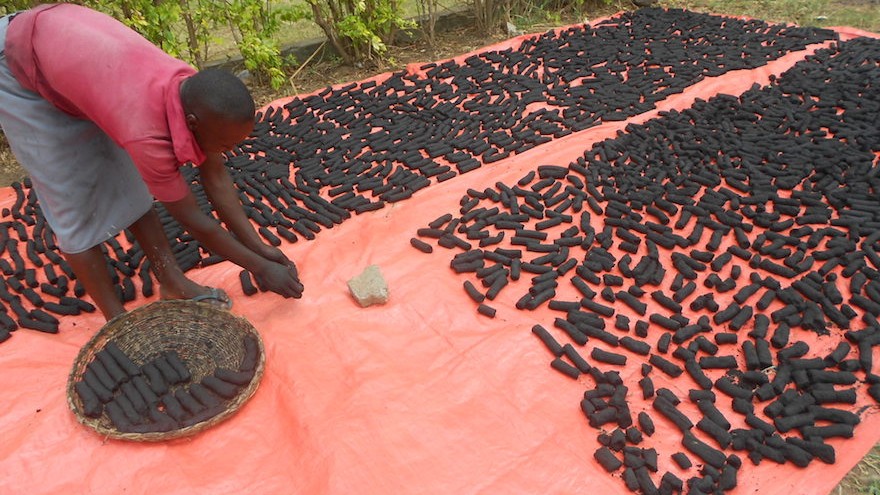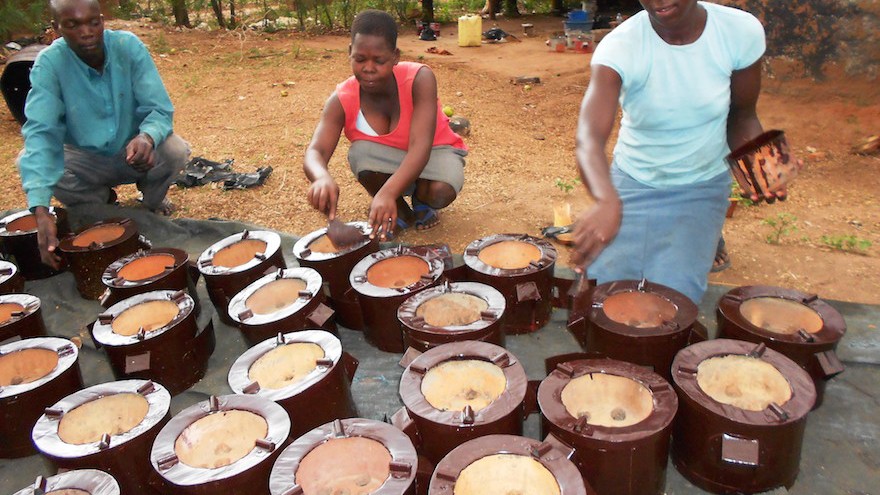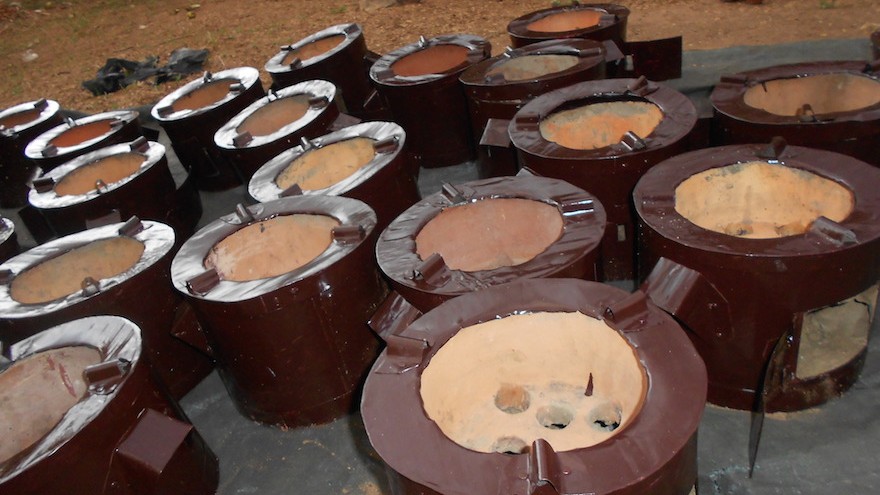From the Series
Betty Ikalany overcame gender prejudice in her community to start a company that produces clean cooking fuel, employs local women and helps grows the business of local farmers. She founded AEST (Appropriate Energy Saving Technologies) Uganda to provide the women in the community with clean, safe and afforable fuel.
Ikalany, a Ugandan eco-entrepreneur from the Soroti district, returned to her community after her studies and began to wonder what she could do to improve the life of the women there. She noticed that girls were lagging behing the boys in school, and sometimes even dropping out in order to help their mothers search for firewood. But the issues with fuel were deeper than the long searches required to find it: charcoal and firewood were also damaging the health of the women through excessive smoke inhalation and damaging a country already suffering from deforestation.
Ikalany began experimenting with different materials with which she could make briquettes for the stoves.
“I began by using cow dung, but my community said it smelt too bad and they didn’t want to use it,” said Ikalany. “Then I tried soaking recycled paper and molding it into blocks, but I found it was very smoky.”
Finally, Ikalany began using carbonised groundnut shells to create her briquettes. She still uses this material today.
Throughout this process of experimentation, Ikalany struggled to persuade her husband, her community and the banks from which she asked for loans that she had a serious business idea.
“My biggest challenge was being a woman,” says Ikalany. “I couldn’t get access to start-up capital. As a woman you are seen as property of your husband. They think you should just sell tomatoes or get on with your chores.”
In March 2012, Ikalany wrote an article about her ideas and it was published by The Charcoal Project in New York and an MIT professor flew over to Uganda to help her with her research.
The professor gave Ikalany training on how to use a small press to make briquettes. Recently she has fashioned a motorised press out of an old meat grinder that helped increase her production. Now, every year students from MIT visit Ikalany in January for three weeks to offer business and skills development to her and her team.
In the beginning Ikalany took on a few members of staff and paid them in credit (giving them a supply of the briquettes that they helped her make). But soon the community began to see that the fuel she was selling was effective and smokeless.
Now, Ikalany can produce two tons of briquettes a day and distributes to five schools in her area and over 300 households. On top of that, the AEST briquettes are around 20 per cent cheaper than charcoal and firewood.
“I get the raw material for free from the farmers and I wanted to give back to the community by making sure it was cheaper.”
As her business grows, Ikalany looks for ways to increase the productivity of the local groundnut farmers and therefore increasing her supply of raw material. She is finding a way to distribute groundnut-shelling machines, which would greatly increase the speed at which the farmers could get their nuts to market. Most currently shell the nuts by hand. Ikalany currently works with a network of 32 farmers.
“It is a scalable product,” says Ikalany. “The problem of clean fuel sources is a problem across the whole of Uganda. The briquettes can be made of difference agricultural waste depending on what is farmed in each region. Here [in the Soroti district] we use grountnut shells, but you can also use maize stalks or bean stalks.”
Betty Ikalany has a bachelor's degree in social work and social administration from Makerere University in Uganda and a master's degree in development studies with a specialisation in women, gender, and development from the International Institute of Social Studies in the Hague, Netherlands. She hopes to expand AEST to include the distribution of solar lights and chargers.











